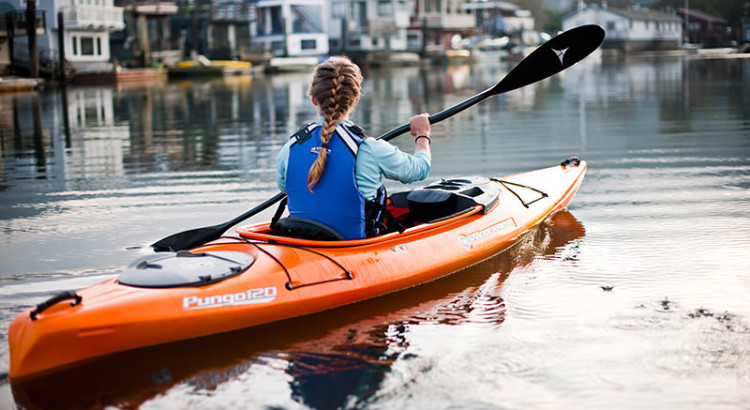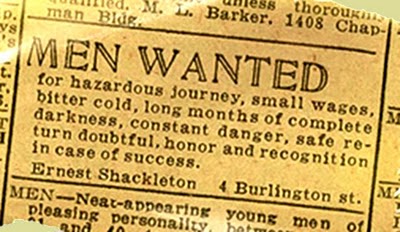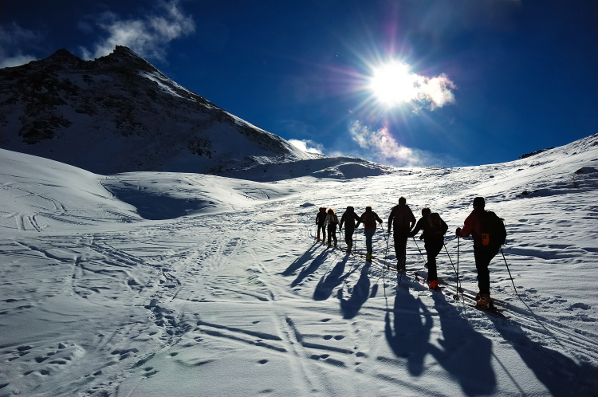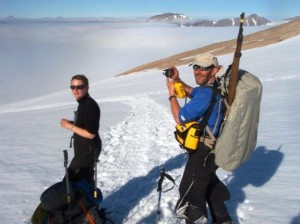A New Fleet of Wilderness Systems Kayaks

The 2017 summer season found us in the fortunate place of turning over our aging Old Town kayak fleet and replacing it with Wilderness Systems Pungo 12′ recreation kayaks, as well as two 14′ versions for instructors. These new kayaks are a big step up, both in terms of design and performance. The Pungos are faster and more stable, and also more maneuverable. The hatch cover seals and enclosures are much more user friendly. The Pungos offer three different areas of seat adjustability which also makes for a notable upgrade in comfort. On top of it all, these are significantly lighter vessels for loading, unloading, and transporting which all add up for our instructors over the summer season. Overall, AIAO staff and participants have been very happy with this upgrade to Pungo kayaks.
Century-Old Shackleton Antarctica Photos Discovered

The Antarctic Heritage Trust recently announced the discovery of 22 never-before-seen images from one of Ernest Shackleton’s Antarctic expeditions. Transported to New Zealand in early 2013, some of the negatives have been developed and are on display for all to see on the NZAHT website.
Thought by many, including some at the AIAO office, to be the ultimate example of adventure and leadership, these photos are bound to excite and inspire anyone with an intrepid spirit.
U.K. Professor Sees Changes Coming to Expedition Industry

Many folks in the outdoor and environmental education fields can relate to Mark Hickman: “As a young man, I wanted to be the guy [professionally] climbing the mountains and running the river.” Of course, it’s not quite that easy, and we’ve all had to invest time, train, and pay our dues.

Hickman (right), in the field.
Starting off with the modest position of cook, Hickman worked his way through the ranks for over 30 years to become an instructor of adventure sports coaching and outdoor leadership skills at the University of Central Lancashire in the United Kingdom. And, his years of experience have led to some intriguing conclusions, particularly regarding the direction of outdoor education and expeditions:
“Following World War II, expeditions focused on a militaristic attitude of building the participants’ character — making them more resilient in the face of challenges. More recently, that has changed to a focus on personal development based around environmentalism, Hickman said. But he predicts a change in the next decade as the business focuses more on the outdoors as a resource for public health for an aging and more obese population, as well as for relief from increasing social isolation and depression.”
According to Hickman, “If we could change people’s perspectives and make a small impact on physical and mental health, it would be a reinvention of the outdoors.”
Many are witnessing shifts within outdoor education, in both people’s interests as well as the types of programs clients and participants are seeking. Hickman offers some food for thought, and I’ll be interested to see how the field evolves from here.
Visit the Billings Gazette for Brett French’s full article, and visit Adventure In, Adventure Out’s website for our full listing of adventure, expedition, and team-building programs.
Outdoor Learning: Education’s Next Revolution?

In this article, psychology researchers from Notre Dame point out, “The right brain, which governs much of our self-regulation, creativity and empathy grows through full-body experience.” This is the part of our brain that helps us manage our emotions and delay gratification. Check out how time in an outdoor environment, as well as unstructured time can not only help develop creativity and imagination, but also compassion, ability to navigate emotions and personal resilience. What a difference these skills make for youth as they face the demands of the 21st Century.
 Adventure In Adventure Out
Adventure In Adventure Out